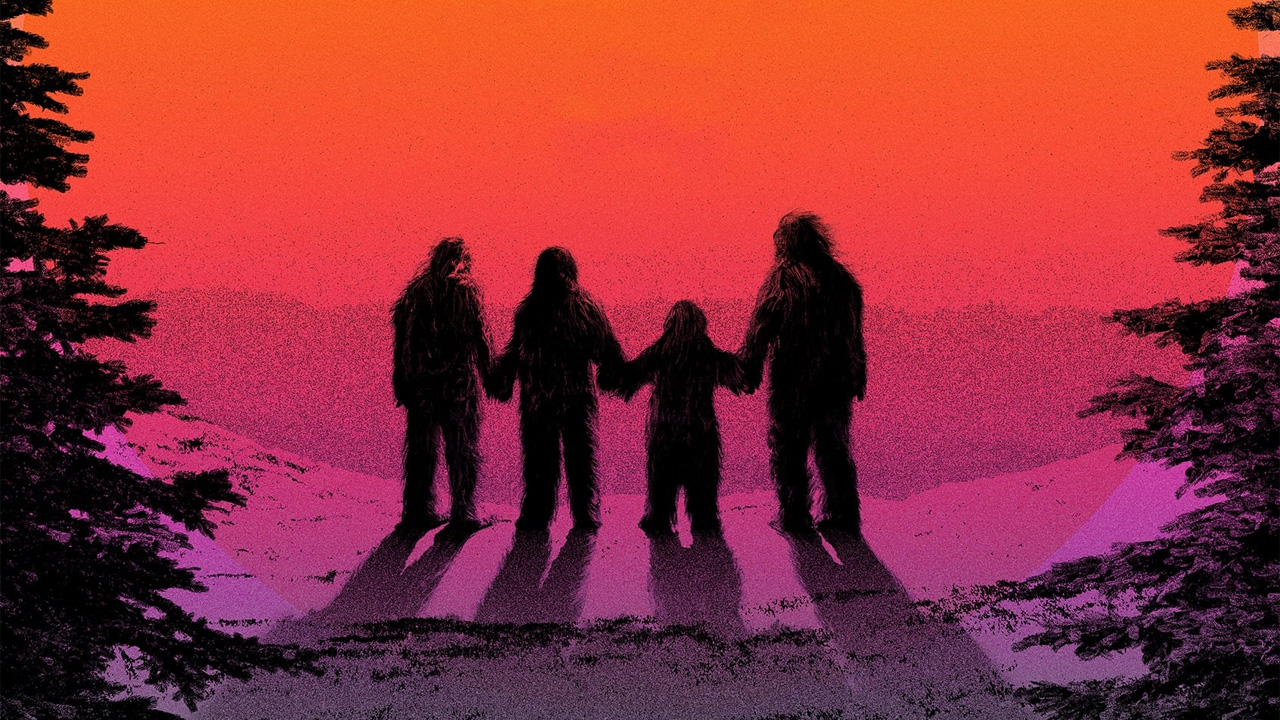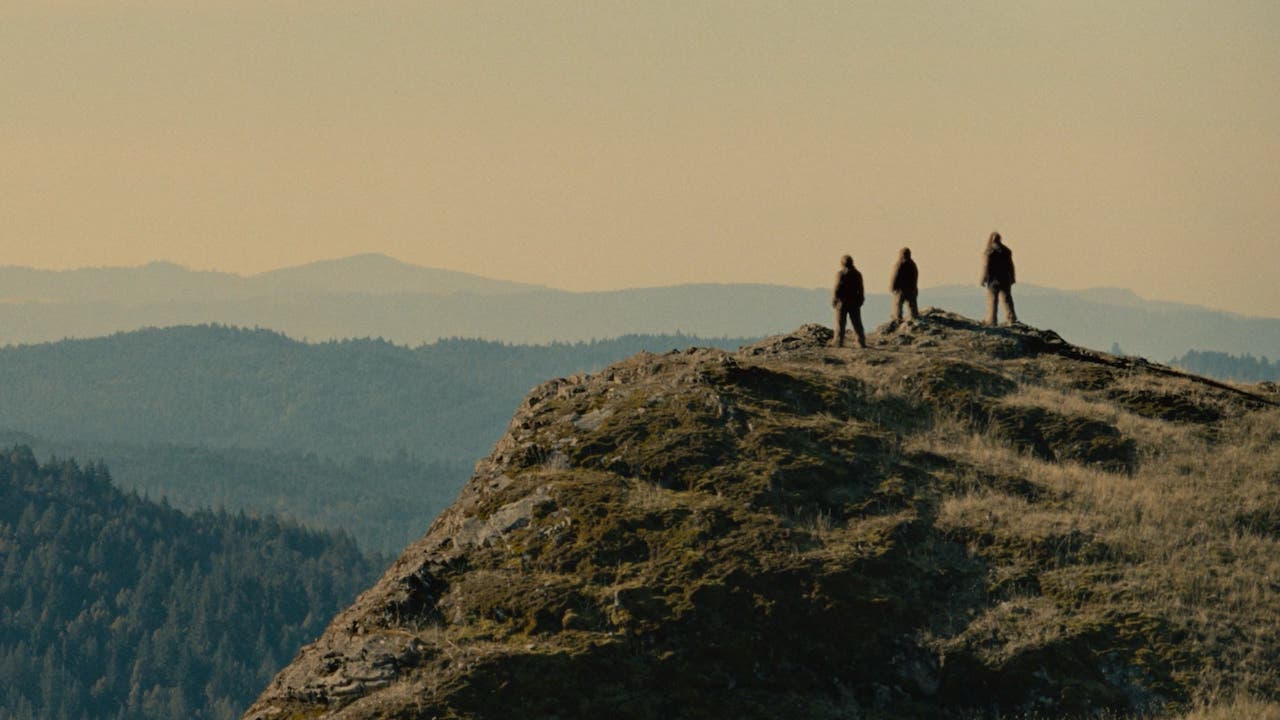Sasquatch Sunset kinda only has one joke—but it’s a funny, yucky one

A quartet of stinky, hairy Bigfoots (bigfeet?) deal with sex, death and invisible humans in the Zellner Bros’ high-concept comedy Sasquatch Sunset. Eliza Janssen saw the film at 2024’s Berlinale, and wonders whether it has legs beyond its most buzzed-about gross-out moments.
As a strident Bigfoot believer, I’m thrilled that we now have a nature documentary giving us insight to their strange and beautiful woodland customs. Sasquatch Sunset follows a family of four such cryptids over the course of one year, as captured by the cameras of Sundance darlings David and Nathan Zellner. Horror freak Ari Aster is an executive producer, giving you some idea of the ickiness, shock comedy, and surreal emotional peaks the project strives towards. David Attenborough is quaking in his fancy British boots right now, I’m sure.
They have no names, no language beyond a limited lexicon of grunts; frankly they’re quite difficult to tell apart at first, Jesse Eisenberg’s particular neurosis in ‘squatch drag only becoming clearer in the film’s second act. Yep; that’s Eisenberg and Riley Keough under two of those unrecognisable prosthetic costumes, both actors’ ignored celebrity making the film feel, at times, like a feature-length prank. In one grisly sequence where KeoughSquatch gives birth to a grotesque BabySquatch, my brain couldn’t help but remind me; that’s Elvis’s dang granddaughter.
Christophe Zajac-Denek (that stabby guy from Twin Peaks: The Return!) plays a juvenile, sooky ‘squatch, and Nathan Zellner gamely gets in front of the camera as a stubborn daddy ‘squatch, who spends one extended comic moment desperately trying to find a hole to shag.
The creatures take part in some recognisable animal activities—sex, finding shelter, lazily eating grass and picking insects off each other—and some more mysterious, ritualistic ones. They assemble to rhythmically bang sticks against trees, the ceremony’s meaning unknown to us. We can glean, however, that they may be trying to communicate with unseen others of their kind. The sad insinuation that these may be the last of the Sasquatch race—experiencing the sunset, as it were, of their species—adds a doomed poignancy to a movie which can otherwise feel one-note in its comedy and structure.
The four actors’ expressive abilities, despite their cumbersome appearances, are noteworthy. The more time we spend in squatch bliss and chaos, the more familiar and human our subjects begin to appear. But without too many big ideas (or even dialogue) to latch onto, Sasquatch Sunset can feel more like a deranged acting exercise, or a movement coach’s highlight reel, than the emotionally impactful and unique story the film has been sold as.
There are fish-out-of-water setpieces that can feel overly familiar. A moment in which the sasquatches discover a road builds to suitably outrageous climax, each of them screaming and pissing and shitting upon the alien surface. But we’ve seen fantasy characters do this shtick before: animated Dreamworks characters, witches and knights transported through time…the gag feels old to be taking up as much space as it does in the film.

Visually, the Zellners are operating in a far more laid-back, meditative mode than their claustrophobic work in directing episodes of The Curse earlier this year. Where that show charged the camera with a malevolent, surveillance-cam presence, Sasquatch Sunset relishes vast forest valleys and surprise cameos from woodland critters. Our quartet is tragically diminished by their seeming lack of any survival instinct, but even as big mortal threats loom over the remaining ‘squatches, the Zellner’s framing and pacing feels jovial, unbothered.
Filthy humankind is kept at a notable distance, but the presence of we lame homosapiens creeps into the plot with the dawning of each new season. KeoughSquatch moves into focus as our protagonist, reacting with existential horror at human campsites and motels. She’s the only character who goes through any kind of evolution, however subtle; she’s forced to become more civilised, more cautious as her pregnancy reaches full-term and winter sets in.
The film is wise to opt for some moments of observational, documentary-esque patience, sitting back and watching our subjects at their weird work in a detached manner that makes the OTT gags feel as novel as possible. Which might not be novel enough for some viewers who lack my taste for gross-out humour. If you loved Swiss Army Man, for instance, you’ll be fine giggling and groaning at this movie’s yuckiest moments.
Jesse Eisenberg and Riley Keough star as Sasquatches in ‘SASQUATCH SUNSET’
In select theaters April 12 and nationwide April 19. pic.twitter.com/e2eN19QZL8
— Film Updates (@FilmUpdates) February 13, 2024
Sasquatch Sunset’s premiere at Sundance was met with a number of audience walkouts, as Variety reports: “a smattering of audience members appeared to be too squeamish…shielding their eyes during bloody moments and stomping for the exit at the Eccles Theater well before the credits began to roll.” That’s practically a badge of honour for a film like this, which coasts on being wilfully wacky and off-putting; oh so random XD. In my screening, there were plenty of disbelieving laughs, head shakes, and folks vocally asking their mates: “what the fuck is this movie?”.
But by the ending, there was also a communal sense of ennui. The faces and postures around me were saying “that’s it?” and “huh…okay”, rather than reeling in delighted shock. The characters’ journey to a more recognisable humanity doesn’t wrap up with a punchline, accenting the big, nasty laughs they’ve shown us; nor does its melancholic, open-ended conclusion raise any urgent or particularly fresh questions.
As far as Sasquatch Sunset’s one joke goes, it’s certainly funny and strange enough to sustain a nicely-made movie with some emotive beats. I just don’t see it travelling much further than stoner dorm rooms, where it’ll enjoy a rapturous applause of “duuude”s and “whatttt hahaha”s.


















